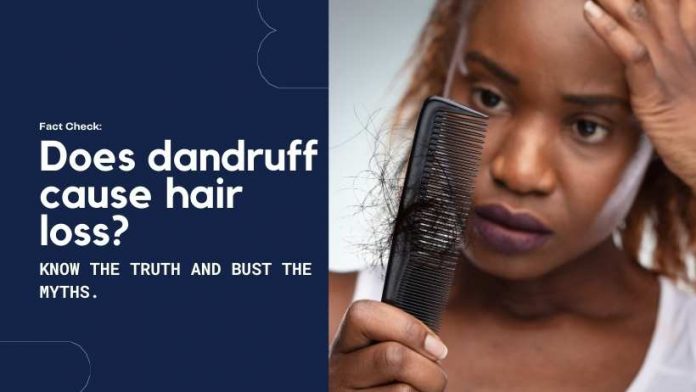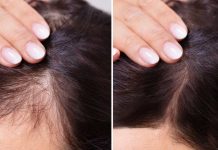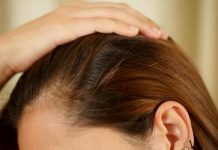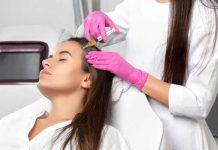If you face hair loss, it is natural to be worried and stressed about it. But, the worry will become a deep concern when you see white flakes falling off your scalp and severe itching. It is a common scalp issue that causes scalp inflammation and flaky skin. So, are you wondering whether dandruff and hair loss are related? This write-up will help you know whether dandruff and hair loss are connected.
What is Dandruff?
Dandruff is a scalp condition, which is a type of seborrheic dermatitis, which causes the development of yellowish-white dry flakes on your scalp [1]. It is not contagious but can range between mild to extreme based on the underlying conditions [2]. Dandruff can develop on your head and other body parts like beards, moustaches, and eyebrows.
Causes Behind Dandruff
You might develop dandruff due to the various reasons. Some of the common causes are:
1. Dry Scalp Condition
If you have dehydrated skin, the chances of your scalp staying moisturized are very low, as it might not get enough moisturization from natural sebum production. Usually, the chances of occurrence of dandruff will be high during the rainy and winter months, as skin loses its moisture and becomes dry in cold seasons.
2. Unhealthy Habits
You might only wash your hair occasionally if you live in an icy region or have a tight work schedule. Such unsanitary practices will lead to excess oil buildup on your scalp. It leads to dandruff. Scalp Infection: Yeast infection on your scalp can also cause the development of dandruff. Malassezia furfur fungus is commonly found in the human scalp. However, some of you might have sensitivity towards this fungus which will lead to an itchy, inflamed, and flaky scalp [3].
3. Allergic Reaction
Some allergic reactions, which develop on your skin, will also cause dandruff on your scalp. You might experience redness, inflammation, and itchiness due to this reaction. Contact Dermatitis is one such skin condition caused by using hair dyes or hair care products with certain chemicals [4].
4. Underlying Medical Conditions
Sometimes, despite maintaining a healthy scalp and keeping it moisturized, you might develop dandruff. This is most common when you have any underlying medical conditions like seborrheic dermatitis, eczema, or psoriasis, which might induce an itchy scalp with dry flakes [5].
5. Age and Sex
Dandruff often develops when a teenager enters puberty and spikes when they reach around 20. It is much less prevalent among people who are aged above 50 years. Sebaceous gland activity will be higher in men than women, as their bodies will be producing high amounts of androgen hormones [6].
Symptoms of Dandruff
If you have developed dandruff, you might have one or more of these symptoms. Keep an eye on these signs of dandruff to get it treated immediately.
- Dry skin flakes falling from the scalp to reach your shoulders are a classic symptom of dandruff.
- Oily flakes with white or yellow tint accumulating on the scalp and near the hair roots.
- Having reddish patches on the scalp called erythema, which might fall on your face and eyebrows.
About Hair Fall
It is usual to lose a few hairs each day, as it is a part of your regular hair growth cycle [7]. For most of you, the hair you lost grows back to maintain your scalp full of hair. But, for some, hormonal fluctuations, illnesses, ageing, stress, and medical conditions can hurt your hair growth cycle. Even though a lot of hair will fall out, new strands don’t grow back quickly. Hair fall can occur suddenly and might be permanent or temporary based on the underlying reason.
What is the Hair Growth Cycle?
An average adult will lose about 100 hairs daily, which is no reason to panic. It is a natural process based on your hair cycle, as your hair will fall regularly and grow back in the respective cycle. At any point, an individual’s scalp will witness about 90% of hair growth. Every hair follicle in your scalp has a specific life cycle, which factors like age, disease, and more can impact. The hair growth cycle is segmented into three phases:
- Anagen Phase: During this phase, your hair will experience an active growth phase for a period between 2 and 8 years. Most people’s hair growth rate will increase in length by 6 inches.
- Catagen Phase: It is a tiny transition phase during which hair growth will be stopped, and its blood supply will be low. This period lasts about 4 weeks, known as the hair transitional period.
- Telogen Phase: During this phase of the hair growth cycle, your hair growth will not happen. Eventually, you will begin to shed hair for 2 to 4 months, which is why it is known as the resting period. After this cycle, your hair growth cycle will start over again.
Common Reasons for Hair Fall
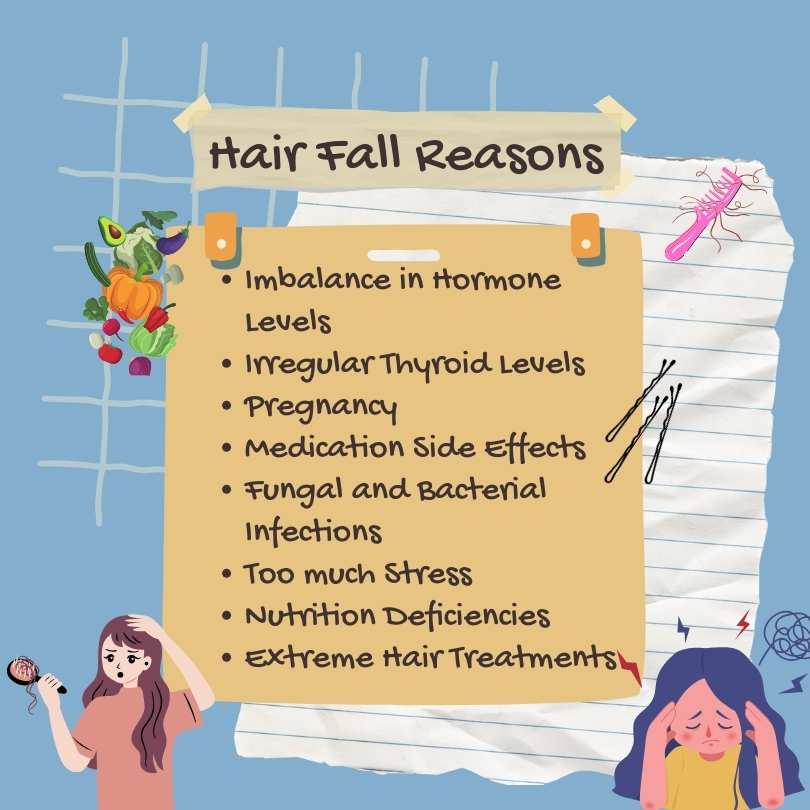
It is always essential to know what is causing hair fall rather than making specific assumptions. Some of the common causes behind hair fall are:
1. Imbalance in Hormone Levels
An imbalance in hormones, like too much production of male sex hormones, androgens, is a significant cause of hair loss, like androgenic alopecia. Hormones like androgen can weaken your hair follicles, leading to severe hair loss. Sometimes, fluctuations in estrogen levels caused by menopause or usage of birth control pills can also lead to hair fall. In men, DHT or dihydrotestosterone stunts hair growth and lowers the lifespan of your tresses, leading to a condition called androgenic alopecia.
2. Irregular Thyroid Levels
When you have an underactive thyroid, it can cause hypothyroidism [8] and when your thyroid gland is overactive, it triggers a condition called hyperthyroidism [9]. Both these thyroid conditions can cause severe hair loss, as both can create an imbalance in the hormone levels. Thyroid glands also cause autoimmune conditions [10] like Grave’s disease or Hashimoto’s thyroiditis [11].
3. Pregnancy
During pregnancy, your estrogen levels will be erratic and might temporarily mess with your hair growth cycle. Even after pregnancy, you will face hair loss, as your hair follicles will reach the shedding phase and may last between 6 and 15 months, causing excessive hair loss.
4. Medication Side Effects
You might face drug-induced hair loss when using chemotherapy drugs during cancer treatment, blood pressure medications with beta-androgenic blockers, and blood thinners.
5. Fungal and Bacterial Infections
Fungal infections caused by ringworms might also lead to hair loss. Sometimes, bacterial infections may cause Syphilis, a type of STD disease, leading to severe hair loss, causing thinning and baldness.
6. Too much Stress
Too much work pressure, medical treatment for a chronic illness, death of a loved one, or facing surgery can make you go through a lot of stress physically and mentally. When you are facing a lot of stress, about 70% of your hair follicles will reach the telogen state or resting period, which is very high when compared to the average 20% rate [12]. This condition is called telogen effluvium, causing severe hair loss.
7. Nutrition Deficiencies
A deficiency of certain minerals, vitamins, and other nutrients can cause hair loss and very low hair regrowth due to poor cell turnover. Eating a poor diet that lacks vitamins and has inadequate amounts of iron, zinc, biotin, and protein is the reason behind hair loss. When your body lacks the required amount of vitamins E, D, C, B, and A, it will also lead to hair loss [13].
8. Extreme Hair Treatments
If you are keen on trying new hairstyles that require you to use heating tools, roller, curlers, tight braids, blow dryers, and high ponytails, it leads to hair loss and damage. If you have the habit of shampooing hair often, using hair dye, bleaching, and perming treatments, then you will face hair thinning issues induced by excess hair loss [14].
Does Dandruff Directly Cause Hair Fall? How an Itchy Scalp Can Lead to Hair Damage?
Dandruff does not induce hair loss directly. However, it causes severe itching, which can make you scratch your head vigorously. Such action can damage and weaken your hair follicles, which, in turn, causes hair loss [15]. And, in some cases, dandruff might make hair loss even worse among people facing androgenic alopecia, which causes pattern baldness among men and women [16].
The Role of Inflammation in Hair Loss
Fungal infections and certain hair product ingredients causes allergic reaction, leading to inflammation of hair follicles. These inflamed hair follicles will increase itching and damage the follicles drastically to cause severe hair loss. Though scalp inflammation is not a serious condition, several issues like seborrheic dermatitis, scalp ringworm, and folliculitis will cause scaly and red patches on the scalp. Such hair loss issues can be resolved by treating the underlying cause of scalp inflammation. As soon as the reason behind scalp inflammation is corrected, your hair will begin to grow back within a few months.
Preventive Measures & Solutions to Keep Dandruff Away
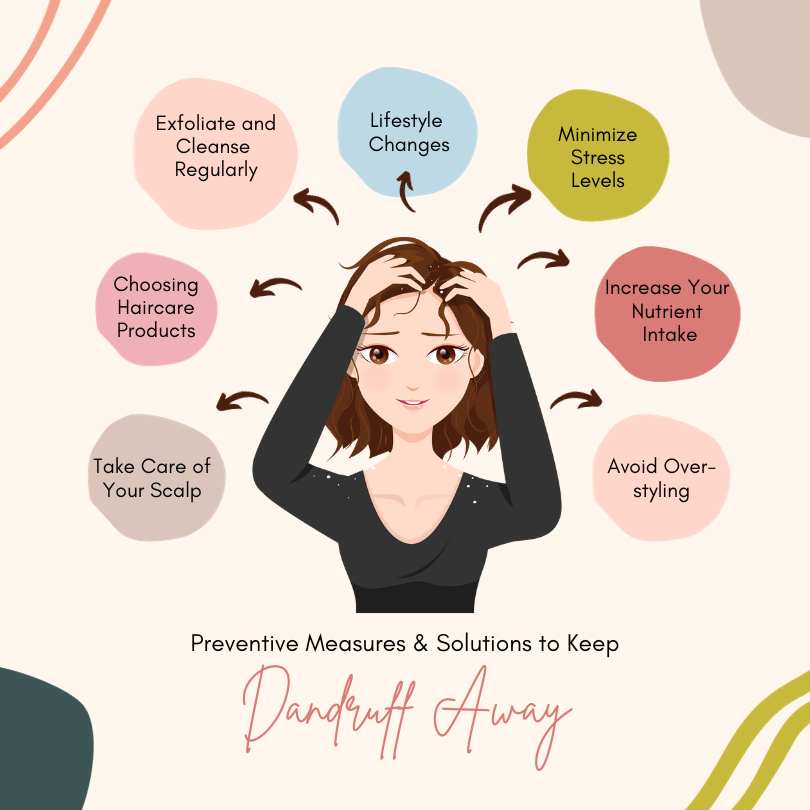
Taking a few preventive measures will help prevent dandruff from recurring and maintain the health of your scalp.
1. Take Care of Your Scalp
Get regular hot oil massage with tea tree oil [17] and rosemary oil [18], which are loaded with antifungal properties. These essential oils help in keeping your scalp well-moisturized, nourished, and revitalized [19]. Hot coconut oil massage keeps dryness at bay, promotes blood flow, and prevents itchiness and flakiness [20]. Avoid tight hairstyles, use a soft brush to comb your hair without much friction, and do not style your hair using chemical products.
2. Exfoliate and Cleanse Regularly
Exfoliating and cleansing the scalp will help quickly remove dead skin cells and prevent buildup from the scalp. Choose anti-dandruff shampoos or gentle clarifying shampoo to wash your scalp thoroughly.
3. Increase Your Nutrient Intake
Making small changes to your diet will work wonders for your scalp health. Including nuts and seeds in your everyday diet will help improve your zinc and vitamin levels. Zinc intake will help in cutting down the androgens produced in your body, which will prevent the occurrence of dandruff. Eating seafood and chia seeds and using plant-based oils in your diet will help maintain a healthy scalp, as they are loaded with omega-3 fatty acids.
4. Choosing Haircare Products
When shopping for hair care products, read the labels to tackle dandruff like a pro. Avoid products that contain coal tar and sulfates [21], as it can increase the sensitivity of your scalp when exposed to sunlight, which can be harmful to your hair. The products you use for your hair should not alter the natural pH level of your scalp, which is around 4.5.
5. Lifestyle Changes
Eat healthy food and reduce spicy and sugary foods, which can cause excessive growth of Candida yeast, another trigger behind dandruff. High sugar consumption will lower the amount of vitamin B in your body, essential to maintain your scalp health and keep away dandruff.
Summing Up
Dandruff is a common scalp condition that can be managed with the proper scalp care and diet changes. People having dandruff are least likely to face hair loss unless it is not treated and leads to scalp inflammation and itching. Even when dandruff might not be the direct cause of your hair loss, it can accelerate hair loss and cause damage to hair follicles when there are other reasons behind it. Several scalp conditions can show symptoms similar to dandruff, but it is worse and has severe itching and terrible hair loss. Fix an appointment with the expert dermatologists at Kolors Healthcare today for treatment.
References
- Department of Dermatology and Cutaneous Surgery, University of Miami Miller School of Medicine, 1600 NW 10th Avenue, RMSB 2023A, Miami, Florida 33136, USA – https://www.ncbi.nlm.nih.gov/pmc/articles/PMC4852869/
- CavinKare Research Centre, No.12 Poonamallee Road, Ekkattuthangal, Chennai – 600 097, India – https://www.ncbi.nlm.nih.gov/pmc/articles/PMC2887514/
- Blake E. Vest; Kevin Krauland. – https://www.ncbi.nlm.nih.gov/books/NBK553091/
- Paula Ludmann, MS – https://www.aad.org/public/diseases/eczema/types/contact-dermatitis
- Dr. Berk is a graduate of New York University School of Medicine in New York City – https://www.ncbi.nlm.nih.gov/pmc/articles/PMC2888552/
- Morgentaler A, Zitzmann M, Traish AM, et al. Fundamental concepts regarding testosterone deficiency and treatment: international expert consensus resolutions. Mayo Clin Proc – https://medlineplus.gov/ency/patientinstructions/000722.htm
- Cheng AS, Bayliss SJ, “The genetics of hair shaft disorders.” J Am Acad Dermatol – https://www.aad.org/public/diseases/hair-loss/insider/shedding
- Mayo Clinic Staff – https://www.mayoclinic.org
- ATA Media Information – https://www.thyroid.org/media-main/press-room/
- Donald S. A. McLeod, FRACP, MPH; Patrizio Caturegli, MD, MPH; David S. Cooper, MD – https://jamanetwork.com/journals/jama/fullarticle/1860451
- American Thyroid Association – https://www.thyroid.org
- Jessica Lau – HSCRB Communications – https://news.harvard.edu
- Nutrition Innovation Center, Human Nutrition and Health, DSM Nutritional Products, Kaiseraugst CH-4303, Switzerland – https://www.ncbi.nlm.nih.gov/pmc/articles/PMC5537775/
- Guo EL, Katta R. “Diet and hair loss: Effects of nutrient deficiency and supplement use.” Dermatol Pract Concept. – https://www.aad.org/public/diseases/hair-loss/causes/18-causes
- The Procter and Gamble Company, Cincinnati, OH, USA – https://www.ncbi.nlm.nih.gov/pmc/articles/PMC6369642/
- Cousen P, Messenger A. Female pattern hair loss in complete androgen insensitivity syndrome. Br J Dermatol. – https://medlineplus.gov/genetics/condition/androgenetic-alopecia/
- Andrew C Satchell, Department of Dermatology, Royal Prince Alfred Hospital, Camperdown, NSW, Australia. – https://pubmed.ncbi.nlm.nih.gov/12451368/
- Yunes Panahi, Mohsen Taghizadeh, Eisa Tahmasbpour Marzony, Amirhossein Sahebkar – https://pubmed.ncbi.nlm.nih.gov/25842469/
- Department of Pharmacognosy and Phytochemistry, School of Pharmaceutical Sciences, Delhi Pharmaceutical Sciences and Research University, New Delhi, India – https://pubmed.ncbi.nlm.nih.gov/34254910/
- Department of Medical Microbiology & Parasitology, University College Hospital, Ibadan, Nigeria. – https://pubmed.ncbi.nlm.nih.gov/17651080/
- Research and Development, Seventh Generation Inc., Burlington, VT, USA – https://www.ncbi.nlm.nih.gov/pmc/articles/PMC4651417/

